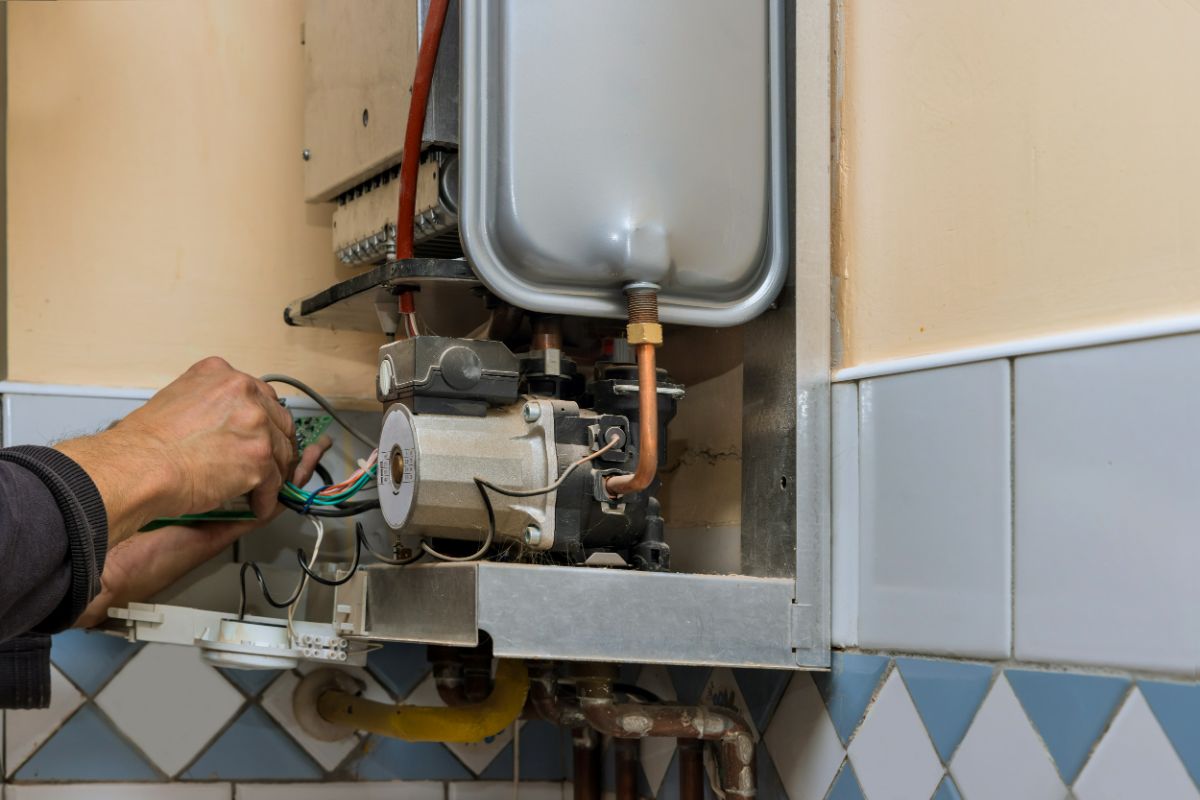Ways to Maintain Your Home's Hot Water System in Good ConditionSteps to Successfully Care for Your Home's Hot Water System
Ways to Maintain Your Home's Hot Water System in Good ConditionSteps to Successfully Care for Your Home's Hot Water System
Blog Article
Are you searching for critical information concerning How to Maintain Your Water Heater & Prolong its Life?

Hot water is necessary for everyday comfort, whether it's for a refreshing shower or washing meals. To ensure your hot water system runs successfully and lasts much longer, normal maintenance is key. This write-up gives useful pointers and understandings on how to preserve your home's hot water system to avoid disturbances and expensive repair services.
Introduction
Keeping your home's warm water system might appear complicated, but with a few simple steps, you can ensure it runs smoothly for several years to find. This guide covers whatever from recognizing your hot water system to do it yourself upkeep tips and recognizing when to contact specialist assistance.
Importance of Maintaining Your Warm Water System
Regular upkeep not only expands the lifespan of your warm water system but likewise ensures it operates efficiently. Ignoring maintenance can cause lowered effectiveness, greater power expenses, and even early failure of the system.
Indicators Your Hot Water System Requirements Maintenance
Understanding when your warm water system needs attention can protect against major issues. Keep an eye out for indicators such as inconsistent water temperature level, strange noises from the heating unit, or rustic water.
Recognizing Your Hot Water System
Prior to diving right into maintenance jobs, it's handy to understand the fundamental components of your warm water system. Typically, this includes the hot water heater itself, pipelines, anode rods, and temperature level controls.
Month-to-month Maintenance Tasks
Regular regular monthly checks can assist capture minor problems prior to they escalate.
Flushing the Hot Water Heater
Purging your hot water heater eliminates debris build-up, improving effectiveness and extending its life.
Monitoring and Replacing Anode Rods
Anode rods prevent corrosion inside the storage tank. Evaluating and changing them when worn out is important.
Checking and Readjusting Temperature Setups
Readjusting the temperature settings guarantees ideal efficiency and safety.
DIY Tips for Upkeep
You can perform numerous maintenance jobs yourself to maintain your hot water system in leading condition.
Looking for Leakages
Frequently evaluate pipes and links for leaks, as these can cause water damages and higher costs.
Evaluating Stress Relief Valves
Checking the pressure relief valve guarantees it functions properly and prevents excessive pressure build-up.
Insulating Pipelines
Insulating hot water pipelines minimizes warmth loss and can save power.
When to Call a Professional
While DIY upkeep is advantageous, some problems call for professional know-how.
Complex Concerns Requiring Expert Aid
Examples include significant leaks, electric problems, or if your water heater is constantly underperforming.
Regular Expert Upkeep Perks
Specialist upkeep can consist of detailed assessments, tune-ups, and guaranteeing conformity with security requirements.
Final thought
Regular maintenance of your home's warm water system is necessary for performance, long life, and price financial savings. By complying with these ideas and understanding when to seek expert help, you can ensure a dependable supply of hot water without unexpected disruptions.
How to Maintain and Troubleshoot Your Heat Pump Water Heater
Know Your Water Heaters Error Codes and How to Clear Them
If your unit is WiFi-enabled, pay attention to the notifications your water heater system sends you and make sure to read and investigate error codes as soon as possible. If your machine has an error code readout on the unit, use your owner’s manual for the hot water heater and find out what the codes mean and how they might be affecting your water heating system. Follow the manufacturer’s directions to assess the issue and clear the code, or call a licensed plumber to take care of that for you.
Change Your Filters Monthly or As-Needed
Heat pump water heaters come equipped with an air filter, usually on the top of the unit where the water heater pulls air into the compressor. Check the filter every few months (put a reminder in your smartphone to make sure you don’t forget!). This will keep peak air flowing into your unit, helping it to work as efficiently as possible and resulting in energy savings over time.
Clean the Condensate Lines
Heat pump water heaters have a condensate drain. As the unit dehumidifies the surrounding area, the moisture has to go somewhere! Make sure to clean this condensate line every year to ensure it doesn’t get backed up with sediment or mold.
To clean the condensate lines, pour a cup of bleach in the access opening of the unit to kill any mold or mildew. Check that the bleach or water flows freely out of the lines, and unclog the lines if needed.
Flush Your Heat Pump Water Heater Annually
Heat pump water heaters are also sometimes referred to as hybrid heat pump water heaters. This is because they contain a backup heating electric heating element inside the tank: the same kind of anode rods used in traditional electric water heaters. That anode rod can become corroded over time from the minerals in your water, and it can begin to decay, break entirely, or heat less efficiently as it becomes corroded. One way to minimize or avoid this corrosion is by flushing your heat pump water heater annually. Just like flushing standard electric or gas water heaters, flushing your water heater is something that any homeowner can DIY if they have a few basic tools and some gumption.
https://www.waterheatersnow.com/blog/how-to-maintain-and-troubleshoot-your-heat-pump-water-heater

I discovered that blog post on How to Maintain Your Water Heater & Prolong its Life when browsing on the internet. Sharing is caring. Helping people is fun. I treasure reading our article about What Kind of Maintenance Do Water Heaters Need?.
Click Here Report this page